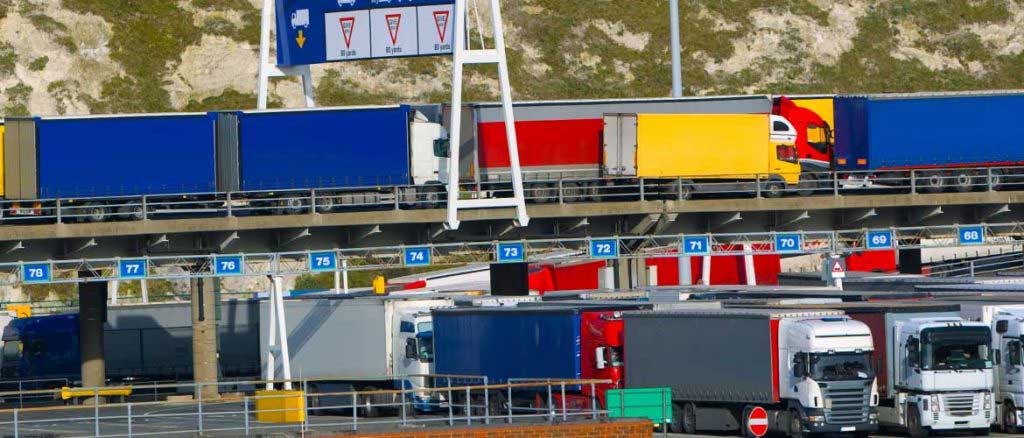Traders caught out by Brexit changes

Since the end of the Brexit transition period on the 1st January, European imports and exports are subject to new customs paperwork and processes and while freight appears to be running fairly smoothly at Dover and the Channel ports, there are significant issues in the background, which are causing disruption away from the ports.
Our operations teams have been working tirelessly to process UK/EU shipments in both directions, overcoming challenges and bottlenecks, particularly when moving goods to the EU.
Ashford, the closest inland border facility to Dover, is already experiencing delays of five hours to print documentation and we are concerned that shippers may be unwittingly exposing themselves to potential tax liabilities.
The Common Transit Convention (CTC) allows importers to make customs declarations and pay import taxes and duties, when goods arrive at their final destination in the EU (or UK), but traders exporting goods under transit need to provide a guarantee to cover any potential customs duties and import VAT and it is critical that the proper procedures are followed at destination, if they are to avoid penalties.
The existing rules for imports from non-EU countries now apply to imports from the EU, but with ‘postponed accounting’ for import VAT on goods brought into the UK with effect from 1st January 2021.
For exports UK businesses continue to zero-rate sales and EU member states will treat goods from the UK as goods entering from other non-EU countries, which means import VAT and any customs duties (tariffs) are due when the goods arrive in the EU.
British and EU exporters must register to pay VAT in their respective territories, which has prompted a number of companies to halt their cross-border trade, until the processes are clearly defined and understood.
“If goods are not manufactured or processed sufficiently in the UK/EU duty may apply”
All goods with a UK or EU origin require a declaration of origin included on the commercial invoice to benefit from preferential tariff rates and failure to provide this origin declaration means that the importer is liable for duty at the prevailing rate.
It is critical for shippers to understand that simply originating in the UK or EU is insufficient to benefit from the terms of the FTA. If goods are not manufactured or processed sufficiently in the UK/EU duty may apply.
HMRC has granted ePoint Medway Customs warehouse status with approval to operate the critical CFSP regime, simplifying the import process, providing cash flow benefits and tax-free sales into the EU.
The major challenge we’re facing is receiving the correct information in advance, which in some cases means we are unable to process shipments.
It is critical that you provide us with the correct data, information and authorisations prior to departure:
1. Your UK EORI Number
2. EU Registered Exporter (REX) number
3. Commercial invoice, incorporating a declaration confirming origin (see example below)
4. Value, Incoterms, gross and nett weights and commodity codes (if known)
5. Authority for NL to act as your ‘Direct Representative’
All goods with a UK or EU origin require a declaration of origin included on the commercial invoice to benefit from preferential tariff rates which, if omitted or incomplete, means that the importer may become liable for duty and VAT at the prevailing rates.
Suppliers’ declarations for products having preferential origin status
Wording to use I, the undersigned, declare that the goods listed on this document….…….…..…..(1) originate in…..…..…..…..(2) and satisfy the rules of origin governing preferential trade with…..…..…..…..(3):
I declare that (4):
Cumulation applied with…………………….(name of the country/countries)
No cumulation applied
I undertake to make available to the Customs authorities any further supporting documents they require:
…..…..…..…..……….(5)
…..…..…..…..……….(6)
…..…..…..…..……….(7)
1 If only some of the goods listed on the document are concerned, they shall be clearly indicated or marked and this marking entered in the declaration as follows:
‘….. listed on this invoice and marked ….. originate in …..’.
2 The UK, EU, country, group of countries or territory, from which the goods originate.
3 Country, group of countries or territory concerned
4 To be completed only where goods are being exported to a country in the Pan-Euro-Med zone. Delete as appropriate.
5 Place and date.
6 Name and position in the company.
7 Signature.

